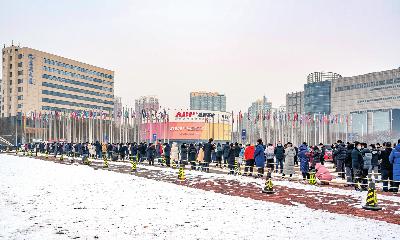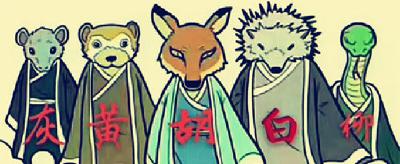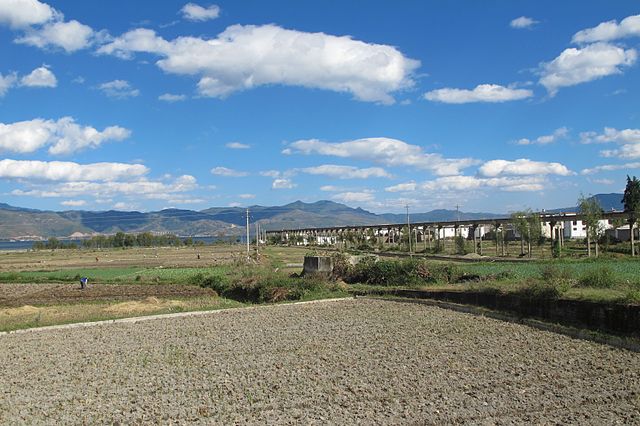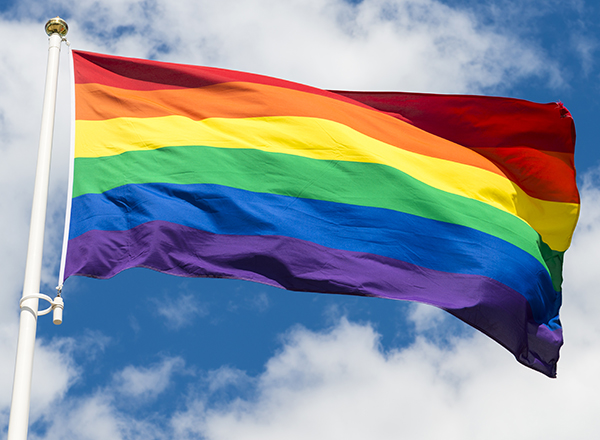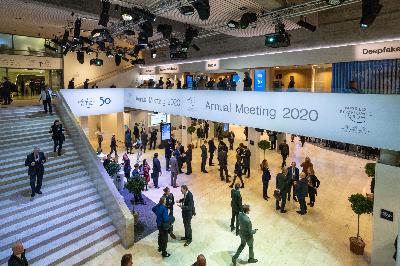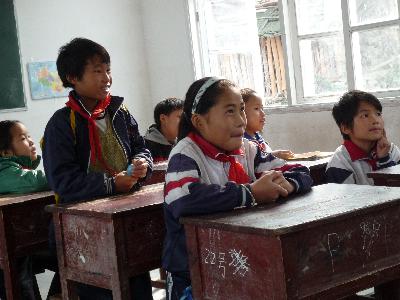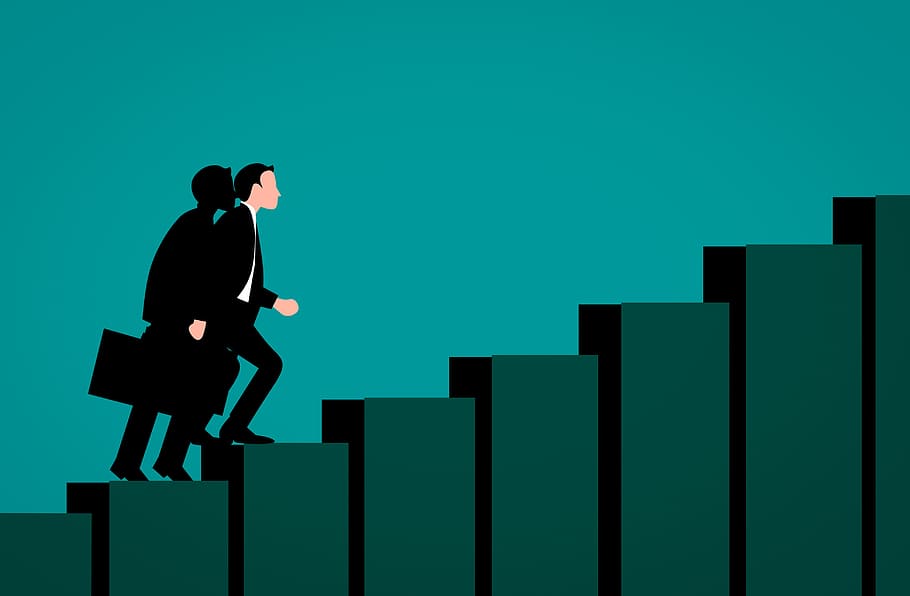Discover Wo Men Podcast
Wo Men Podcast

84 Episodes
Reverse
The latest mass outbreak of COVID-19 in China has impacted people's lives, with over 5000 new cases reported each day this week. While the numbers are small compared with what other countries have experienced during the pandemic, the most recent outbreak is the largest in China since 2020. Many residents in major cities like Shanghai and the tech hub of Shenzhen have been told to remain in their homes, and officials in several jurisdictions have given orders for full or partial lockdowns. After feeling safe and protected for the past two years by China's Zero Covid Policy, Chinese people have, for the first time, started to question whether this policy is effectively dealing with the new omicron variant. Our Co-Host Yajun is now on her 16th day of being forced to stay inside her apartment complex due to a case of COVID being reported in the same compound. Co-Host Karoline was just released from mandatory quarantine after returning to China from a trip overseas. In this episode, Yajun and Karoline shared their personal experiences and observations of how public opinion has started to shift regarding China's Zero COVID strategy.
When people feel confused or uncertain about their lives, some turn to fortune-tellers or psychics for guidance and advice. China has a long tradition of fortune-telling, soothsaying, and even exorcisms and shamanism. Those living in the Northeastern part of the country consult people known as Daxian (大仙), which can be translated as “spirit mediums” or “spirit possessors”). Daxian are the representatives of a local religion, combining shamanism and animal worship (including weasels, foxes, mice, snakes, and hedgehogs). According to legend, once these animal spirits possess their bodies, the daxian can cure disease or predict the future. We talk to Vicky, a native of Northeastern China. She describes her personal experiences of consulting a daxian for help when she had difficulties maintaining a long-term relationship. She also shares her recent discovery about the extent her family was involved with this local religion.
It's an annual tradition. Yajun, Jingjing, and Karoline, the three cohosts of the Wo Men Podcast, got together virtually to discuss their experiences in 2021 and share their memories of the year that was. They also talked about what they were looking forward to most in 2022. Spoiler Alert: They would like to see each other and are hopeful that China will open its borders soon so that family and friends can finally be reunited. Fingers crossed!
In China, there have been generations that “stood up” (站起来 zhànqǐlai) and generations that “jumped into the sea” (下海 xiàhǎi), but many young people in China today are choosing instead to just “lie down and chill.” The term “Lying Flat” (躺平 tǎngpíng) became popular following a blog post entitled “Lying Flat is Justice” (躺平即是正义 tǎngpíng jíshì zhèngyì) went viral earlier this year. This call to inaction inspired many to choose a lifestyle that rejected the social pressure to work hard and conform. Why bother striving if the “Chinese Dream” of a high-paying job, buying a house, and checking all the boxes for success seem impossible? Many young people are also turning their backs on the corporate grind and risky start-up jobs to find a stable gig with China’s biggest employer: the government. Why are young people lining up for “less competitive” jobs in the civil service? After 30 years of standing up and another 30 years of jumping in the sea of entrepreneurship, why are so many young people choosing a life of less struggle? To answer these questions, we talked with Kailai, a student at one of China’s top universities, who explains to us why the growing gap between expectations and reality is causing young people to question assumptions about what is the meaning of a successful life and why when the going gets tough, sometimes the best thing you can do is take a step back, lie down, and chill.
2021 marks the 20th anniversary of the September 11 attacks carried out by the terrorist group Al-Qaeda against targets in the United States. Over 3000 people died as a result, and the world was forever changed. Since then, the United States has faced many challenges, including a long-running military occupation of Afghanistan, which ended only this year. The past two decades have also seen a steadily rising China seeking to challenge US hegemony and disrupt the existing international order. What did 9/11 mean for China and the US-China relationship? How did people in China understand and react to the news that the United States had been attacked? In this episode, Karoline and Yajun share their personal stories of hearing about 9/11 and how those experiences have affected their later careers as cultural intermediaries between the world and China. They also reflect on how their careers have been affected by the complicated US-China relationship and consider how they can contribute to improving mutual understanding between the world’s two largest economies.
When most people think about China in the 21st century, they picture the big coastal megacities like Beijing or Shanghai. But that’s only a small part of the picture. For this episode, we traveled out west to Qinghai Province, which has an area the size of France but a population of just six million people. The region where Qinghai and southern Gansu Province meet has long been a frontier zone, a point of contact for many different ethnic groups, including people who still live a nomadic lifestyle. Today it is one of the poorest regions in China and has been the focus of intensive development even as many people who live there try and preserve their traditional lifestyle and distinctive culture. We talk to Gombo, who was raised in a Mongolian nomadic family and went on to be the first in his area to graduate from college. Gombo describes his life growing up in a nomad camp, how Tibetan Buddhism continues to be a significant part of his life, and how he pursued his education and career in modern China. Today, Gombo works in the travel industry with the company Elevated Trips based out of Xining. Gombo is also a very talented musician and he shared with us some of his songs which you can hear as part of the episode.
Are you tired of big city life? Ever think of escaping the noise, dust, and exhausting pace of life for a slice of the country? For many young people in China, work means 12-hour days, six days a week, with a long and crowded commute to and from work. No wonder so many people are considering trading urban living for a rural lifestyle. In recent years, Dali has become a magnet for writers, musicians, artists, painters, and people looking to simplify their lives. In this episode, Karoline Kan talks to Feather, who moved to Dali from Beijing, about her lifestyle change.
The Medical Aesthetics industry (what your grandmother calls “plastic surgery”) is booming in China. According to Deloitte, China's aesthetic medicine market grew from 65 billion yuan (US$10 billion) in 2015 to 175 billion yuan in 2019. That’s three times faster than the global industry average. Why are Chinese women -- and men -- so crazy about beauty treatments? Don’t they worry about the risks and possible side effects? Today we talked to Guli Ai, a consumer with ten years of experience using aesthetics treatment. Guli explains her journey in pursuit of beauty and why she’s not afraid to take advantage of the benefits of medical science in her quest for perfection.
While many companies have felt the impact of Covid-19, some courageous entrepreneurs in China are still willing to take risks and launch new ventures in this time of global economic fluctuations. Our guest today, Lysa Wei, is one of them. In 2020, Lysa started her own company bringing hard seltzer to the China market. Low-calories and sugar-free, hard seltzers have become one of the world’s hottest (or coldest, depending on how you like drinks served) alcoholic beverages in the world. In this episode, Lysa explains the opportunities and the challenges of starting a company in the Covid era. She also shares how to introduce a new alcoholic beverage to Chinese millennials who like to get their buzz differently from their parents or older siblings.
The LGBTQ+ community in China is largely out of sight, and awareness of ideas relating to sexual equality is still very low. Ying, who calls herself Iron, is a feminist, activist, and director of the Beijing LGBT Center. She is one of the most prominent activists promoting LGBT rights in China and has played a vital role in arranging mental health services for the LGBTQ community. For the first time, a national survey has been conducted to look at the lives of the LGBTQ community in China. Ying joins our show today to discuss her personal experience as a member of this community and how she developed her passion into a career. She also shares with us her views on the progress – and remaining challenges – for activists promoting LGBTQ rights in the PRC.
Many people have thought about quitting their 9-to-5 job to travel around the world, but few people carry out their plan. One couple made it happen and found a new career inspiration and life direction along the way. Faye and Celyn live in Beijing. Faye worked at a Chinese agricultural company. Celyn (celynbricker.com) was an artist who had always been interested in using art as a lens to look at social issues. They quit their jobs, left Beijing with just two backpacks, and arrived in Africa as the first stop. They planned to travel along the human migration route and record the highlights of their journey as a documentary. They didn’t have a clear agenda in terms of what stories they were going to collect, but it did not take them long before they found that climate change was a term that frequently appeared in conversations with local communities. Climate change interrupted people’s agricultural routines, caused conflicts between different groups of people, and threatened local religions' survival. It even contributed to the rise of the HIV infection rate in certain areas as climate change affected the kinds of economic opportunities that had previously been empowering women. Along the way, they also learned the wisdom to live harmoniously with nature. After returning to China, the couple decided to focus on climate-related art projects and founded Celu Studio to provide a public platform to learn more and take positive action. In this episode, Karoline Kan sits down with Faye and Celyn to learn more about their journey and their new platform for tackling one of the world’s most important and pressing issues.
How do you do it? Where do you find the time? Women in leadership positions are frequently asked how they balance family life and their career. Which makes us wonder: why don’t we ask the same questions of male executives? Is it less of an issue for men, or are they just more reluctant to talk about work-life balance, fearing that it might not conform to the expectations of a strong boss focused on his work and leading his team? Perhaps what is needed is a safe space for male leaders to challenge these stereotypes and talk about their challenges juggling family, marriage, and a successful career. You wouldn’t think that the high-wattage conclave of World Economic Forum’s (WEF) Annual Meeting in Davos would provide that kind of cozy safe space, but that’s exactly where a group of “Davos Dads” gathers to share their family struggles and swap parenting tips. In this episode, we talked to David Aikman. David is the Chief Representative Officer of Greater China for WEF. This year, the annual meeting is hosted virtually, but David talks about organizing the “Dads group” at past meetings. David also shares with us his views on leadership and the experiences he has learned from nearly two decades working with some of the world’s top leaders.
Schools all over China have signs and banners exhorting students to hao hao xuexi, tiantian shang shang ("Study hard and make progress every day"). Being a kid -- or a parent! -- in China means a lot of pressure to compete and succeed and the educational system is built around the college entrance exams. Students sacrifice their childhood and freedom for hours and hours of homework and after-school programs to “win the game at the starting point” and secure a promising future. But are exams and homework the purpose of education? Quite a few people in China have been exploring alternative solutions and approaches. In this episode, we talked to Chen Zishu, a Harvard-educated student who brought her ideas and actions back to China. She tells us about her academic and professional journey and shares her observations about China’s education-industrial complex.
It seems like every email we have received recently begins with “In this challenging year…” Well 2020, your time is almost up. You only have a few days left before we turn the page to 2021. Every year at this time, we look back on the year that was and talk about our plans for the future. In this episode, Yajun, Jingjing, and Karoline discuss surviving a global pandemic, their thoughts on a new global order while also talking about their personal highlights (and low-lights) of 2020, including new babies, family health emergencies, lockdown blues, and the challenge of staying motivated while the world seems to be falling apart. Finally, the ladies share their new year resolutions because 2021 has got to be an improvement over 2020, right? Right!?!?!?
Over the past few weeks, the US election has dominated the news worldwide, even in China. Chinese people have been fascinated to watch an odd political soap opera unfold in the United States beginning with the election of Donald Trump back in 2016. Four years later, despite harsh rhetoric and aggressive policies directed at China, Trump still has supporters here. Today we ask the question: Why is Donald Trump still so popular in China? Joining us for this episode is Patricia, a Chinese lawyer who works in a multinational tech company. She Chinese. She is a woman. And she is a Trump supporter. If you’re wondering why, well…so are we. So we invited Patricia on our show to tell us her views about how she came to support Donald Trump and why she is still a fan.
China’s economy is getting back to normal. However, the outbreak of Covid-19 still changed many people’s lives forever. Some of them were fired while others spent months job hunting, and many more used the crisis to re-value the things they used to take for granted. Life almost one year after the first case of coronavirus is permanently different for many people. How has this changed their view of the world and their future? Karoline Kan speaks with Song, a 29-year-old man who used to work at some top international financial consulting firms and never met a challenge in his career. Song quit his job a few years ago to enroll in an international MBA program, hoping that experience would help him further develop his career. He was always confident in his educational background and working experience. Song never imagined an unprecedented public crisis would change his career path and how he feels about so many things in life and career. What to do now? Join a multi-national company or China’s state-owned system? Should he prioritize ambition or stability? In this episode, we look at the fragility of life for China’s middle class. How has the Covid-19 crisis changed people's hopes, fears, ambitions, and worries?
For many people worldwide, the protests in Hong Kong have been a news story in a year full of news. But the demonstrations and political crisis have deeply affected Hong Kongers dividing the city and even families. Michelle is from Hong Kong but living in Japan and has been arguing with her girlfriend – who is from mainland China – about the protests. What happens when different backgrounds, viewpoints, and media consumption starts to come between a couple? In our latest episode, Michelle explains to us why the Hong Kong issue is so complicated. Even in her own family, her parents, brothers, and Michelle all have different takes on the situation. Meanwhile, Michelle and her girlfriend try to communicate their different beliefs with patience, open minds, and open hearts. Michelle also shares the challenges a same-sex couple faces in Hong Kong and on the mainland and how she and her girlfriend have used persistence and wisdom to navigate a range of family obstacles as they build a future together.
2020 has been a challenging year. Many families experienced an incredible sense of loss, sadness, and desperation as they lost family members to Covid-19. Meanwhile, other families welcomed new life who brought love and hope during a difficult time. Our co-host, Jingjing, and our close friend, Annie, each gave birth this year and it was not easy. They suffered from both physical and psychological challenges that a new mother would not face in a typical year, including labor without an epidural due to a shortage of maternity staff in the hospital and risking exposure to the COVID-19 virus. They worried about how to ensure the safety of their new babies during a global pandemic. In this episode, Annie and Jingjing share their personal experience of giving birth in the year of COVID-19.
The Covid-19 Pandemic has affected many people’s lives and had a detrimental impact on businesses around the world. But some industries have inadvertently benefited from the outbreak — such as pornography. Even though porn is legally prohibited in China, such restrictions don’t stop many people from looking for adult content, most of the time by using a VPN to bypass the country’s internet censorship. For this episode, we talked to Annie Huang, who shares why she uses pornography as a healthy entertainment option to help relieve stress. She also explains why women should consider their sexual desires as normal needs, rather than something to be ashamed of.
In a recent podcast episode, we discussed how Covid-19 changed the outlook when it came to China’s consumption boom. As a part of the generation that had taken supercharged economic development for granted and had never worried about financial stability, the potential impact of Covid-19 on the economy also requires us to rethink our finances. In this episode, we have invited Jackie You — a former investment banker who previously joined us to discuss following your heart — to share her insights and experiences with us. Jackie shares how people in China are adapting to a new economic reality, as well as some lessons that can be applied universally.


